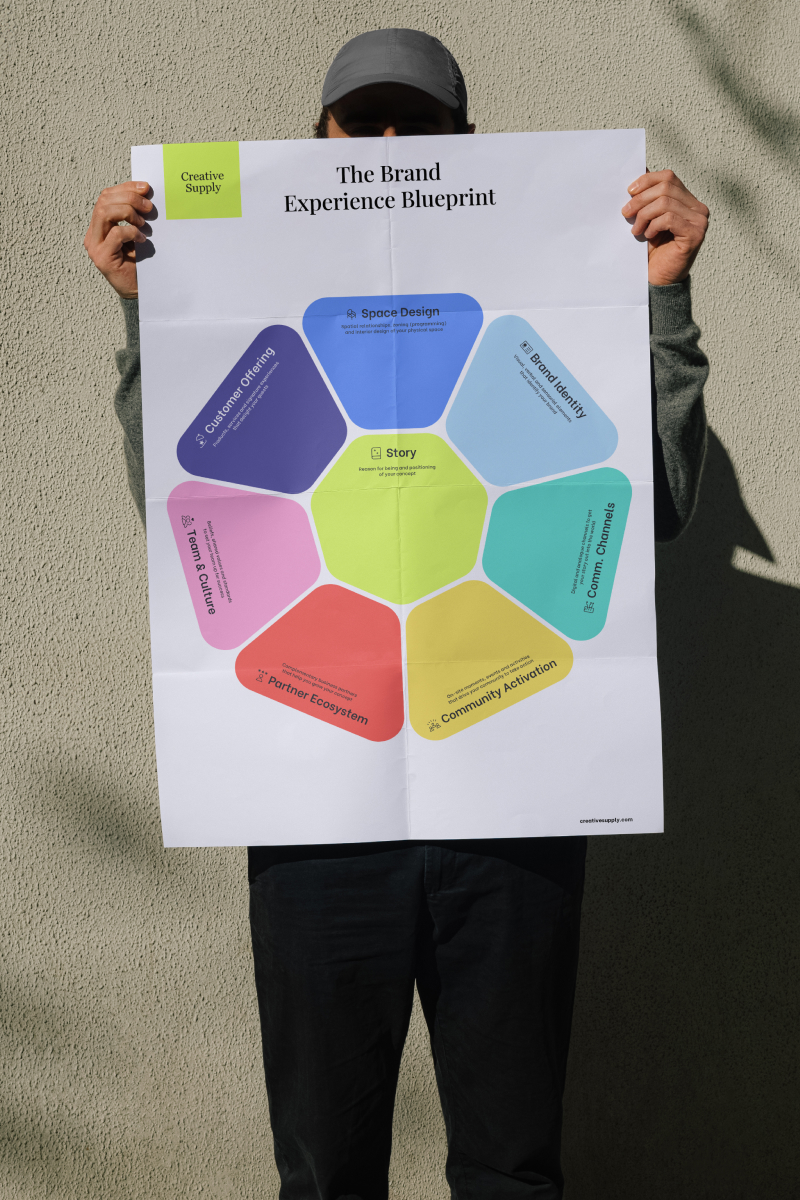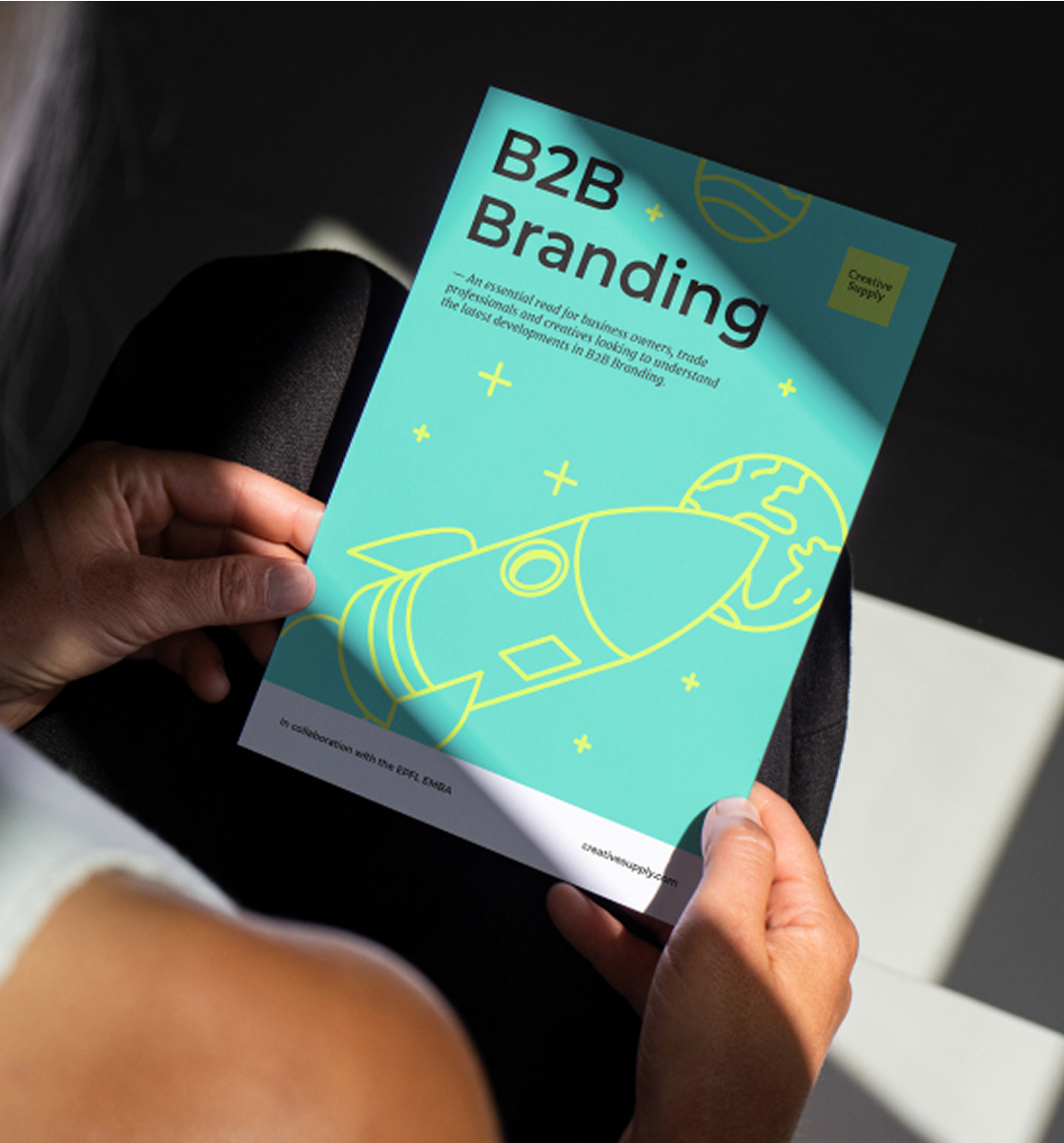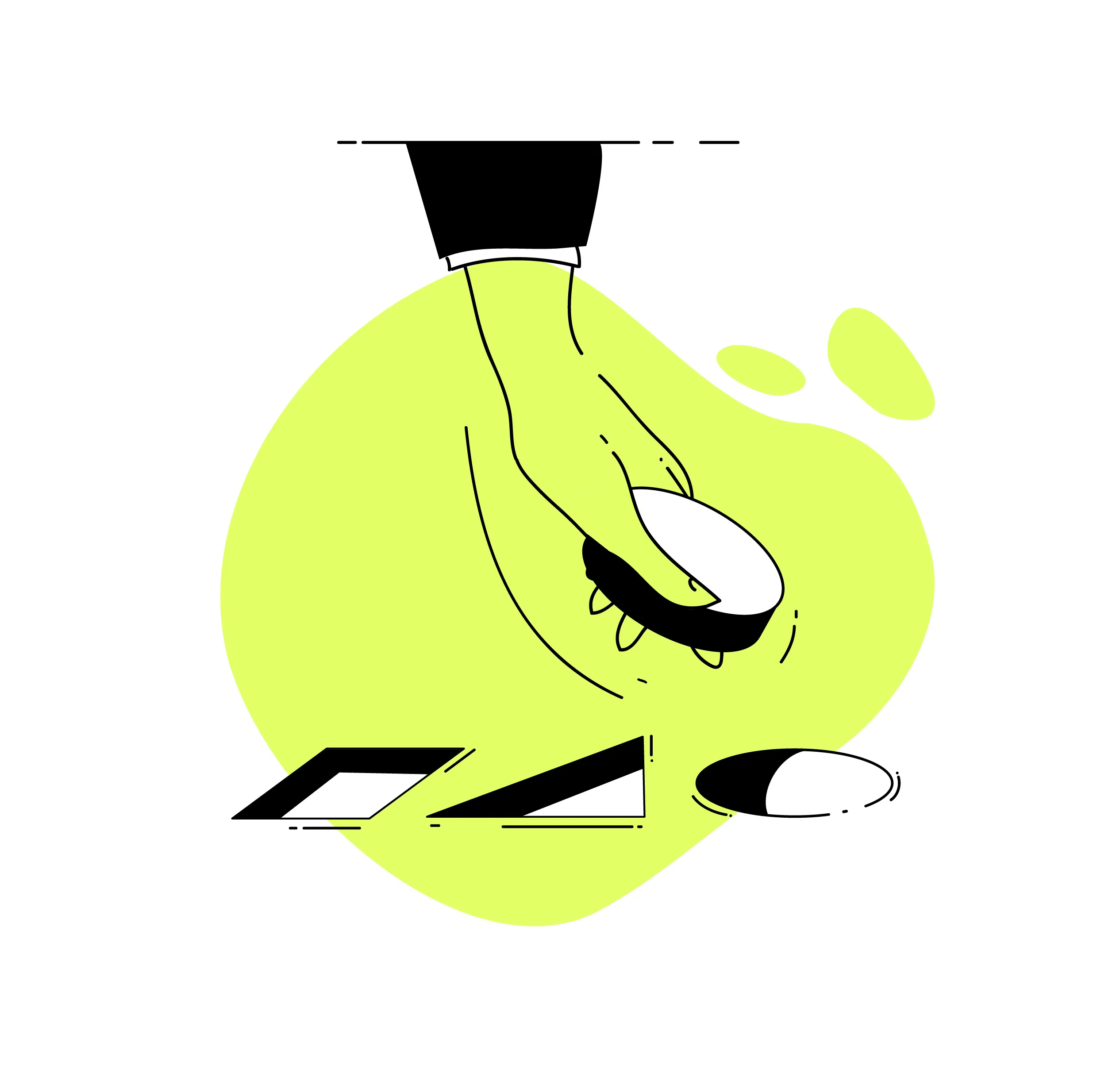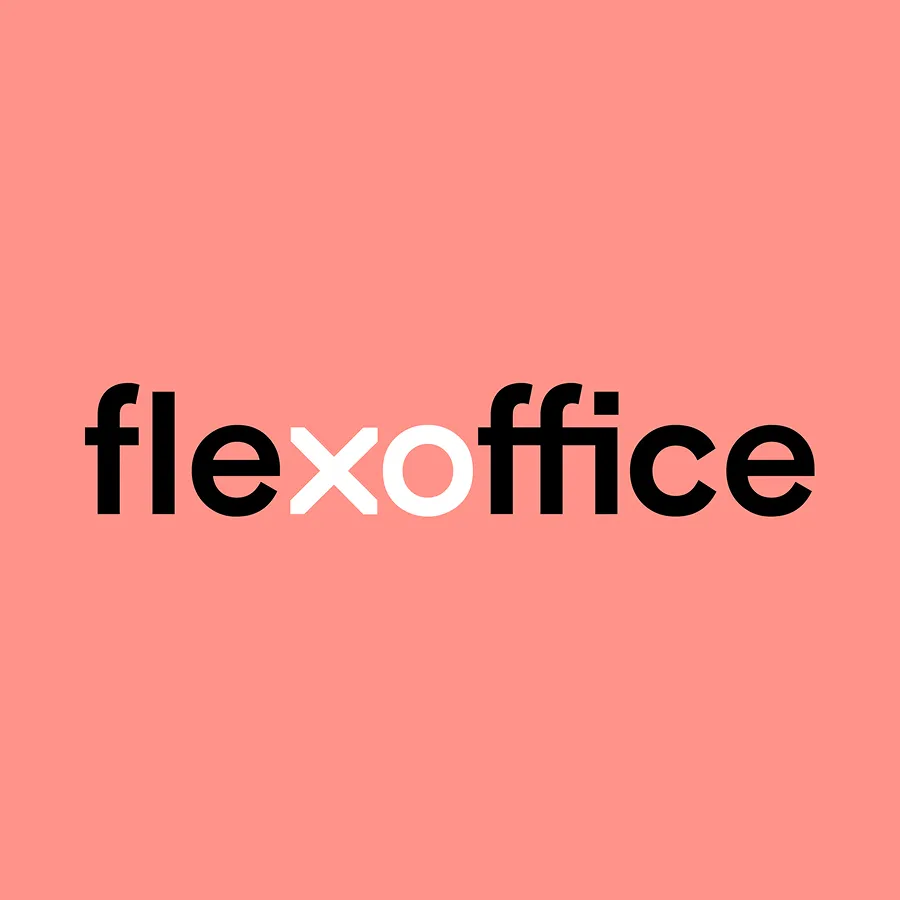The ambivalent appeal of the Swiss brand for B2B companies
Discover how the Swiss brand affects B2B companies, and how they can use “Swissness” to their advantage, without depending on it.

More than stereotypes
Switzerland is a small country with a big reputation. Historical exports like luxury watches, chocolate or banking services have become synonyms of the country. However, beneath these stereotypes are underlying qualities like precision, craftsmanship and discretion, which are beneficial for many companies but have also created somewhat of an image problem for the country. A 2018 study conducted by EY found that Swiss companies are some of the biggest spenders in Research & Innovation worldwide, yet Switzerland does not enjoy the same innovative image as California or South Korea. Swiss companies shine in a myriad of sectors from pharma to cosmetics to industry and software development, and the majority of executives we talked to recognise the value of the Swiss brand. But rather than clinging to old stereotypes, companies should instead be championing the values that underpin the Switzerland of today.

“Swissness” Challenges
Another difficulty in positively leveraging Swissness as a company is that everyone does it the same way. When most competitors share the same advantage, it no longer qualifies as an advantage. Worse, some companies with questionable Swiss heritage and even more questionable production processes have been abusing the Swiss brand for their own benefit, negatively impacting the “swiss-made” reputation in the process. This has led to a number of high-profile scandals, including in the prestigious Swiss watchmaking sector. In 2017, for example, it was revealed that hundreds of watch brands–some of which household names–using the “Swiss made” label for their products, were actually sourcing most of their components from Asia and merely assembling the final product in the country. New rules passed the same year have failed to eradicate the problem, undermining Swiss suppliers and causing market unrest at a time where the industry was already reeling from the rise of smartwatches and lifestyle upstarts like Daniel Wellington or Briston.
Examples such as this underline the difficult situation faced by B2B companies that have relied exclusively on their Swissness to sell their products abroad without investing in their own brand equity. This is the double-edged sword of being dependent on country branding. Whatever benefits are gained from Swissness must be balanced against the loss of control over your own brand. If the Swiss brand takes a hit, companies that depend on it will be the first to suffer.

“Good brand values can bring people together, both within and outside a company.”
FRÉDÉRIC DREYER-GONZALES, Director at the Office for the Promotion of Industries and Technologie
The Fondue Pot Theory
Harnessing the values tied to “Swissness” is definitely an opportunity for B2B brands. The benefits are too good to be ignored. “Good brand values can bring people together, both within and outside a company,” says Frédéric Dreyer-Gonzales, Director at the Office for the Promotion of Industries and Technologies, and Switzerland certainly doesn’t lack positive brand values. But at the end of the day, it is just one tasty ingredient in any good brand strategy recipe, like a Gruyère cheese – necessary but not sufficient to make a great Swiss fondue. When you look at ABB, Swiss-Swedish leader in the energy market, Switzerland is not an obvious part of its brand messaging and story. However, the brand is inevitably associated with high quality and performance both through its core industry and new ventures (e.g. partnership with Formula E). Through consistent brand management, ABB has subtly and successfully combined the Swiss values with a message focused on innovation and technological development.

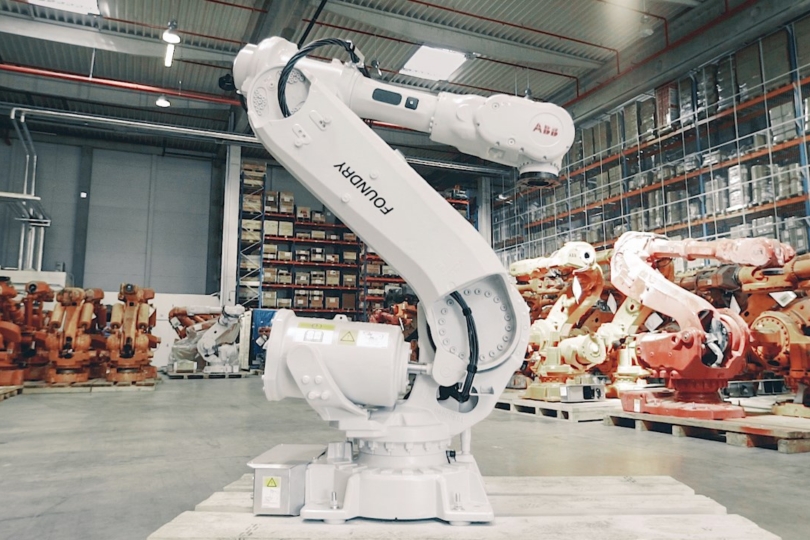
Define your own Swissness
More broadly, companies wanting to steer clear of genericism should refrain from promoting all aspects of Swissness. Picking the one value or the one strong symbol that resonates with a company’s identity is a good way to avoid looking like everyone else, while reinforcing one’s own brand. Take the example of our client My Sky, a Swiss-based jet software provider. They leverage the neutrality of their home country (Switzerland) to reinforce their positioning as a neutral and independent player within the jet industry. In doing so, My Sky builds a strong competitive advantage against its global competitors.

The ambivalent appeal of the Swiss brand for B2B companies



The ambivalent appeal of the Swiss brand for B2B companies
Discover how the Swiss brand affects B2B companies, and how they can use “Swissness” to their advantage, without depending on it.
More than stereotypes
Switzerland is a small country with a big reputation. Historical exports like luxury watches, chocolate or banking services have become synonyms of the country. However, beneath these stereotypes are underlying qualities like precision, craftsmanship and discretion, which are beneficial for many companies but have also created somewhat of an image problem for the country. A 2018 study conducted by EY found that Swiss companies are some of the biggest spenders in Research & Innovation worldwide, yet Switzerland does not enjoy the same innovative image as California or South Korea. Swiss companies shine in a myriad of sectors from pharma to cosmetics to industry and software development, and the majority of executives we talked to recognise the value of the Swiss brand. But rather than clinging to old stereotypes, companies should instead be championing the values that underpin the Switzerland of today.

“Swissness” Challenges
Another difficulty in positively leveraging Swissness as a company is that everyone does it the same way. When most competitors share the same advantage, it no longer qualifies as an advantage. Worse, some companies with questionable Swiss heritage and even more questionable production processes have been abusing the Swiss brand for their own benefit, negatively impacting the “swiss-made” reputation in the process. This has led to a number of high-profile scandals, including in the prestigious Swiss watchmaking sector. In 2017, for example, it was revealed that hundreds of watch brands–some of which household names–using the “Swiss made” label for their products, were actually sourcing most of their components from Asia and merely assembling the final product in the country. New rules passed the same year have failed to eradicate the problem, undermining Swiss suppliers and causing market unrest at a time where the industry was already reeling from the rise of smartwatches and lifestyle upstarts like Daniel Wellington or Briston.
Examples such as this underline the difficult situation faced by B2B companies that have relied exclusively on their Swissness to sell their products abroad without investing in their own brand equity. This is the double-edged sword of being dependent on country branding. Whatever benefits are gained from Swissness must be balanced against the loss of control over your own brand. If the Swiss brand takes a hit, companies that depend on it will be the first to suffer.

“Good brand values can bring people together, both within and outside a company.”
FRÉDÉRIC DREYER-GONZALES, Director at the Office for the Promotion of Industries and Technologie
The Fondue Pot Theory
Harnessing the values tied to “Swissness” is definitely an opportunity for B2B brands. The benefits are too good to be ignored. “Good brand values can bring people together, both within and outside a company,” says Frédéric Dreyer-Gonzales, Director at the Office for the Promotion of Industries and Technologies, and Switzerland certainly doesn’t lack positive brand values. But at the end of the day, it is just one tasty ingredient in any good brand strategy recipe, like a Gruyère cheese – necessary but not sufficient to make a great Swiss fondue. When you look at ABB, Swiss-Swedish leader in the energy market, Switzerland is not an obvious part of its brand messaging and story. However, the brand is inevitably associated with high quality and performance both through its core industry and new ventures (e.g. partnership with Formula E). Through consistent brand management, ABB has subtly and successfully combined the Swiss values with a message focused on innovation and technological development.


Define your own Swissness
More broadly, companies wanting to steer clear of genericism should refrain from promoting all aspects of Swissness. Picking the one value or the one strong symbol that resonates with a company’s identity is a good way to avoid looking like everyone else, while reinforcing one’s own brand. Take the example of our client My Sky, a Swiss-based jet software provider. They leverage the neutrality of their home country (Switzerland) to reinforce their positioning as a neutral and independent player within the jet industry. In doing so, My Sky builds a strong competitive advantage against its global competitors.

DownloadThe ambivalent appeal of the Swiss brand for B2B companies
More than stereotypes
Switzerland is a small country with a big reputation. Historical exports like luxury watches, chocolate or banking services have become synonyms of the country. However, beneath these stereotypes are underlying qualities like precision, craftsmanship and discretion, which are beneficial for many companies but have also created somewhat of an image problem for the country. A 2018 study conducted by EY found that Swiss companies are some of the biggest spenders in Research & Innovation worldwide, yet Switzerland does not enjoy the same innovative image as California or South Korea. Swiss companies shine in a myriad of sectors from pharma to cosmetics to industry and software development, and the majority of executives we talked to recognise the value of the Swiss brand. But rather than clinging to old stereotypes, companies should instead be championing the values that underpin the Switzerland of today.

“Swissness” Challenges
Another difficulty in positively leveraging Swissness as a company is that everyone does it the same way. When most competitors share the same advantage, it no longer qualifies as an advantage. Worse, some companies with questionable Swiss heritage and even more questionable production processes have been abusing the Swiss brand for their own benefit, negatively impacting the “swiss-made” reputation in the process. This has led to a number of high-profile scandals, including in the prestigious Swiss watchmaking sector. In 2017, for example, it was revealed that hundreds of watch brands–some of which household names–using the “Swiss made” label for their products, were actually sourcing most of their components from Asia and merely assembling the final product in the country. New rules passed the same year have failed to eradicate the problem, undermining Swiss suppliers and causing market unrest at a time where the industry was already reeling from the rise of smartwatches and lifestyle upstarts like Daniel Wellington or Briston.
Examples such as this underline the difficult situation faced by B2B companies that have relied exclusively on their Swissness to sell their products abroad without investing in their own brand equity. This is the double-edged sword of being dependent on country branding. Whatever benefits are gained from Swissness must be balanced against the loss of control over your own brand. If the Swiss brand takes a hit, companies that depend on it will be the first to suffer.

“Good brand values can bring people together, both within and outside a company.”
FRÉDÉRIC DREYER-GONZALES, Director at the Office for the Promotion of Industries and Technologie
The Fondue Pot Theory
Harnessing the values tied to “Swissness” is definitely an opportunity for B2B brands. The benefits are too good to be ignored. “Good brand values can bring people together, both within and outside a company,” says Frédéric Dreyer-Gonzales, Director at the Office for the Promotion of Industries and Technologies, and Switzerland certainly doesn’t lack positive brand values. But at the end of the day, it is just one tasty ingredient in any good brand strategy recipe, like a Gruyère cheese – necessary but not sufficient to make a great Swiss fondue. When you look at ABB, Swiss-Swedish leader in the energy market, Switzerland is not an obvious part of its brand messaging and story. However, the brand is inevitably associated with high quality and performance both through its core industry and new ventures (e.g. partnership with Formula E). Through consistent brand management, ABB has subtly and successfully combined the Swiss values with a message focused on innovation and technological development.


Define your own Swissness
More broadly, companies wanting to steer clear of genericism should refrain from promoting all aspects of Swissness. Picking the one value or the one strong symbol that resonates with a company’s identity is a good way to avoid looking like everyone else, while reinforcing one’s own brand. Take the example of our client My Sky, a Swiss-based jet software provider. They leverage the neutrality of their home country (Switzerland) to reinforce their positioning as a neutral and independent player within the jet industry. In doing so, My Sky builds a strong competitive advantage against its global competitors.

